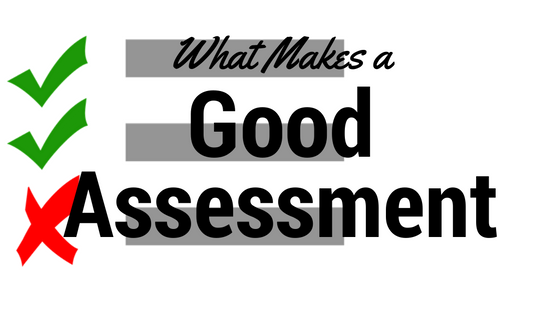
Assessments refer to a “wide variety of methods that educators use to evaluate, measure, and document the academic readiness, learning progress, and skill acquisition of students.” Simply put, assessments are how instructors and teachers evaluate whether or not students have learned the taught material.
Assessments can range from pop quizzes to final exams to midterm papers and project-based assignments; what unites them all is that they measure students’ learning. There are three key areas on which the quality of an assessment can be measured: reliability, validity, and bias. A good assessment should be reliable, valid, and free of bias.
First, reliability refers to the consistency of students’ scores; that is, an assessment is reliable when it produces stable and consistent results. Reliability can come in two major forms: (1) stability and (2) alternate form reliability. Stability means that tests or assessments produce consistent results at different testing times with the same group of students. If they do not produce similar results, the assessment may not be reliable.
Alternate form reliability means that multiple versions of the assessment or test produce the same results with the same group of students. The alternate versions must be equivalent so that students cannot automatically score better on one version than the other, and this type of reliability is critical for multiple-choice tests, and less important for essays or writing-based assessments.
Second, validity refers to whether or not the assessments actually measures the learning objective it purports to evaluate. An assessment is valid when it measures the content that was taught and when it reflects the content and skills you emphasize when teaching the course. Validity is critical because educators make inferences from assessment scores about student achievement or mastery of content. Professors and instructors can trust valid assessments to determine what their students have learned, but invalid assessments cannot be trusted.
Third, absence of bias refers to grades flowing from the students’ mastery of the learning objective instead of from the question itself. A good example of how bias could impact a student’s performance in an assessment is the rise of ESL learners – in a college environment that is becoming more and more diverse, idioms or slang words might trip up nonnative speakers of English, making the exam biased towards those who speak English as a first language. Another example is lack of objectivity in assessments – either in how questions are worded (taking certain things for fact when students may dispute their truth) or in professors awarding scores capriciously.

